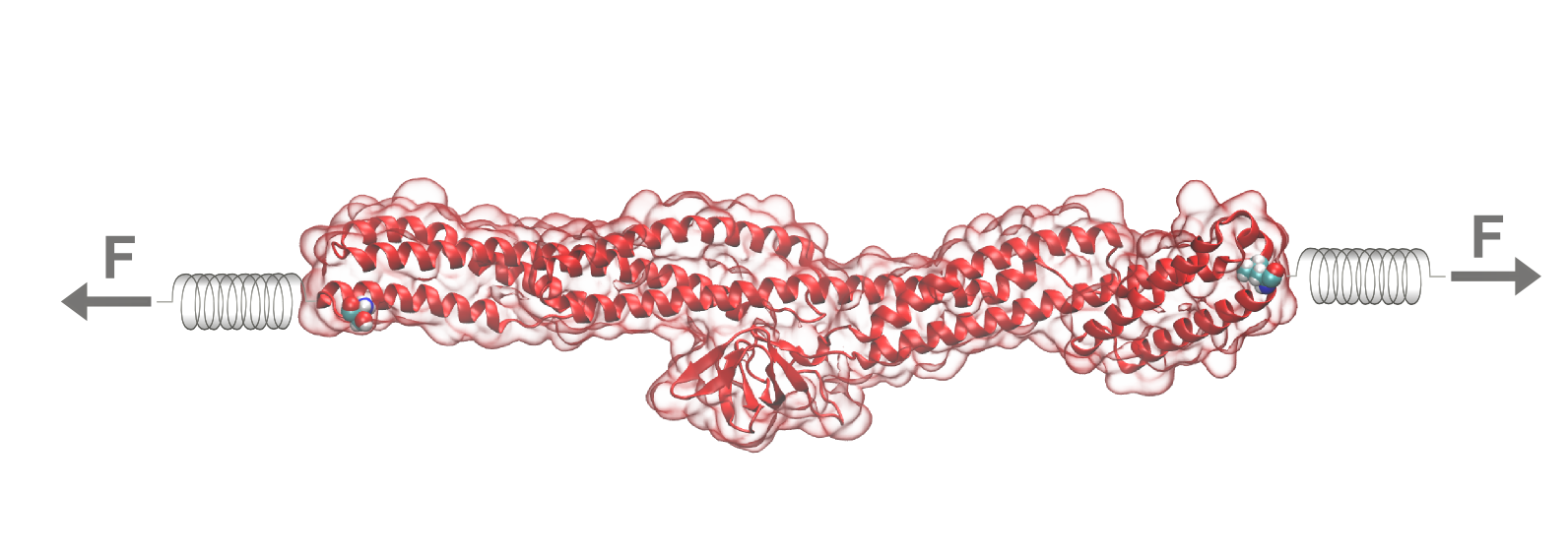Research that gets under the skin: HITS involved in new DFG Program

A new Priority Program of the German Research Foundation (Deutsche Forschungsgemeinschaft, DFG) focuses on our biggest organ – the skin. The program is titled “Epithelial intercellular junctions” and aims at examining these junctions. Prof. Thomas Magin from the Translational Centre for Regenerative Medicine (TRM) and Biology department of Leipzig University coordinates the program. Epithelial cells serve as layer between our bodies and the environment. They play an essential role in protecting the body from dehydration, infections, toxins, and mechanical stress. Prof. Frauke Gräter – group leader of the HITS Molecular Biomechanics Group, MBM – will be supervising one of the program projects.
The epithelial tissue is under permanent mechanical strain. It is therefore highly interesting for scientists to investigate the strong intercellular junctions stabilizing the tissue and the forces within it, sensing and transmitting information. The molecular background of this “force-sensing” is yet unknown. The MBM Group researches the molecular mechanisms responsible for the folding and extending of certain protein molecules within desmosomes. Desmosomes are membrane structures connecting cells. The HITS scientists are trying to better understand these molecular processes by using molecular dynamics simulations and new algorithms.
“Epithelial intercellular junctions” is one of 16 new Priority Programs that will be funded with a total of € 89 million over the next three years. The DFG’s objective is to support research on fundamental scientific questions in well-established but also recently developing research areas. Scientists from Leipzig, Halle, Jena, Hannover, Cologne, Aachen and Munich are working alongside the HITS researchers.
Press Contact:
Dr. Peter Saueressig
Head of Communications
Heidelberg Institute for Theoretical Studies (HITS)
Phone: +49-6221-533245
Peter.saueressig@h-its.org
www.h-its.org
Twitter: @HITStudies
About HITS
HITS, the Heidelberg Institute for Theoretical Studies, was established in 2010 by physicist and SAP co-founder Klaus Tschira (1940-2015) and the Klaus Tschira Foundation as a private, non-profit research institute. HITS conducts basic research in the natural, mathematical, and computer sciences. Major research directions include complex simulations across scales, making sense of data, and enabling science via computational research. Application areas range from molecular biology to astrophysics. An essential characteristic of the Institute is interdisciplinarity, implemented in numerous cross-group and cross-disciplinary projects. The base funding of HITS is provided by the Klaus Tschira Foundation.